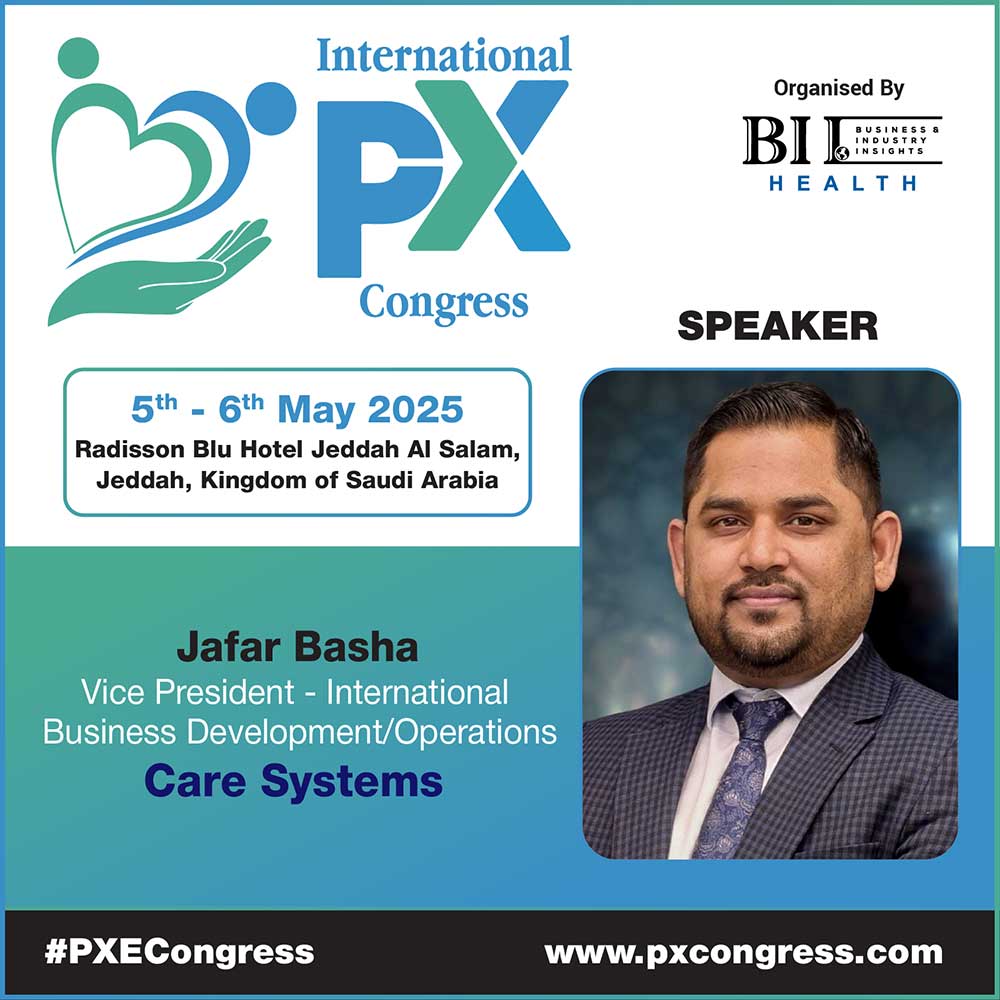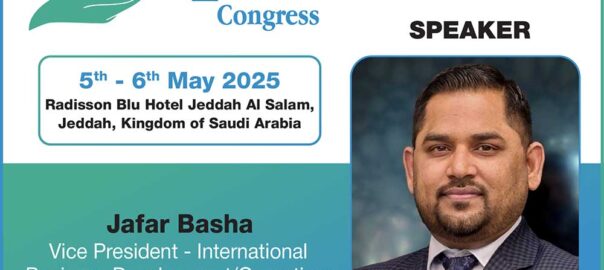Vice President- International Business Development/Operations
Care Systems
1. In your opinion, how have consumer expectations in healthcare evolved in recent years, and what are the key factors driving this change?
Consumer expectations in healthcare have shifted dramatically in recent years. Patients now expect the same level of convenience, personalization, and responsiveness from healthcare providers as they do from other service industries. This change is largely driven by digital transformation, greater access to health information, and a growing emphasis on holistic well-being. In the Middle East, especially, we’re seeing a younger, tech-savvy population demanding seamless digital interactions, faster response times, and transparency in care delivery. Post-pandemic realities have also raised expectations around accessibility, safety, and service quality.
2. The theme of this year’s congress emphasizes “exceptional care.” How do you define exceptional patient experience, and what strategies can healthcare organizations adopt to achieve it?
Exceptional patient experience means delivering care that is not only clinically effective but also deeply human, personalized, and consistent across every touchpoint. It involves timely service, empathy from caregivers, clear communication, and a sense that the system works for the patient. To achieve this, healthcare organizations must invest in both people and processes—this includes training staff on emotional intelligence, leveraging smart scheduling to reduce wait times and burnout, and using data to anticipate and meet patient needs. At Care Systems, we focus on enabling these strategies operationally through intelligent workforce management and patient-centered staff scheduling.
3. What role do emerging technologies (such as AI, telemedicine, and digital health platforms) play in shaping the future of patient experience?
Emerging technologies are critical enablers of the next generation of patient experience. AI can help optimize staff allocation to ensure the right skills are available when and where they’re needed—minimizing delays and improving care quality. Telemedicine expands access to care, especially in underserved or remote areas. And digital health platforms provide real-time engagement, patient education, and continuity across the care journey. In our work across the Middle East, we’ve seen how these tools—when thoughtfully implemented—transform not only patient satisfaction but also operational efficiency and workforce morale.
4. From your experience, what are the biggest challenges healthcare providers face in meeting and exceeding patient expectations, and how can these be addressed?
One of the biggest challenges is workforce-related—shortages, burnout, and misalignment between clinical demand and staffing capacity. These issues can directly impact service quality and patient satisfaction. Another challenge is siloed data and disconnected systems, which hinder continuity and responsiveness. Addressing these requires a combination of cultural and technological shifts. At Care Systems, we help providers overcome these hurdles through AI-powered scheduling, real-time schedule adjustments, and systems integration—all geared toward creating more agile, people-centered operations.
5. Can you share a real-world example or best practice where a healthcare organization successfully transformed its patient experience?
We recently worked with a major hospital group in the region that was facing chronic staffing shortages and long patient wait times. By implementing our AI-driven workforce management platform, they were able to streamline scheduling, dynamically match staff to patient acuity levels, and reduce last-minute shift gaps. As a result, patient wait times dropped significantly, staff satisfaction improved, and the organization reported measurable gains in patient feedback scores. This transformation didn’t require overhauling clinical protocols—it came from smarter operations and putting the right people in the right place at the right time.
6. What key message or insight would you like attendees to take away from your session at the Patient Experience Congress?
The patient experience doesn’t start in the exam room—it starts behind the scenes with how we manage our healthcare workforce. By aligning strategy, technology, and human capital, we can create healthcare systems that are not only efficient but empathetic. I hope attendees walk away with a renewed appreciation for operational excellence as a foundation for exceptional care—and practical ideas on how to embed innovation into their everyday processes.



